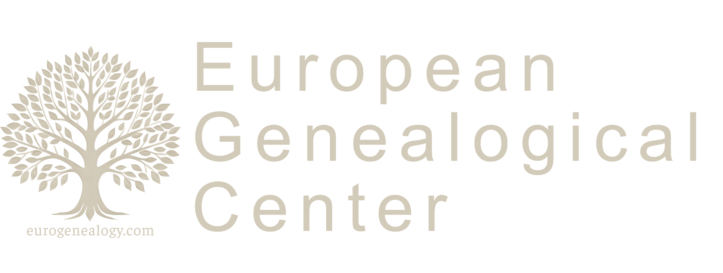Genealogical research in Croatia: family tree & nationality tracing
Discover your ancestry dating back to the 17th century
Archival search and family history research in Croatia
Genealogical research in Croatia opens a rich and multifaceted window into the past, offering a rare chance to rediscover family heritage in one of Europe’s most historically layered and culturally diverse regions. Croatia’s position at the intersection of Central Europe, the Balkans, and the Adriatic has resulted in a distinctive archival legacy shaped by centuries of Catholic tradition, Venetian and Austro-Hungarian administration, Ottoman influence in the east, and later, Yugoslav integration. Each of these powers contributed unique layers of recordkeeping, religious practice, language, and administration. At the European Genealogical Center, we provide in-depth research services to help clients trace their Croatian ancestry through a wide range of sources, including civil and ecclesiastical registers, notarial documents, legal records, population lists, and family archives. Croatian records are remarkably rich, often dating from the 18th century — and in certain coastal or ecclesiastical regions like Dalmatia, even earlier — enabling multi-generational reconstructions based on authentic archival evidence.
Many clients approach us not only to trace their family lineage but also to gain a fuller understanding of the religious, legal, and linguistic context in which their ancestors lived and interacted. Our specialists work with collections housed in national archives in Zagreb as well as regional repositories in cities such as Split, Osijek, Rijeka, and Dubrovnik. We also access parish registries, diocesan holdings, municipal collections, and specialized local archives. Documents are located, transcribed, and interpreted with attention to historical context and linguistic variation — including Latin, Croatian, Italian, Church Slavonic, and Hungarian. We prepare certified transcripts and translations upon request and compile comprehensive family history books featuring family trees, biographical sketches, original archival facsimiles, and historical commentary. In researching families from multilingual or borderland areas — such as Istria, Međimurje, Slavonia, or the former Military Frontier — our team carefully accounts for changing jurisdiction, dialects, and evolving place names.
Sources of genealogical research in Croatia
The core of genealogical research in Croatia lies in parish metric books — baptismal, marriage, and burial records maintained by Roman Catholic parishes, many of which date as far back as the 17th century. These registers were originally written in Latin, transitioning gradually to Croatian in the 19th and 20th centuries. In Orthodox communities, especially in Eastern Slavonia, Kordun, and Banija, records were often maintained in Church Slavonic or Serbian. Jewish communities in urban centers such as Zagreb, Osijek, and Varaždin also kept their own registers, often in Hebrew, German, or Hungarian. With the introduction of civil registration in the Austro-Hungarian period, another layer of documentation was added, particularly useful for late 19th and early 20th-century records, complementing parish books and providing additional verification of family events. These sources reveal far more than names and dates — they offer details about occupations, sponsors and godparents, social standing, and occasional notes on migrations or significant life events. In coastal towns and cities, one often finds connections to maritime professions and commerce throughout the Adriatic, reflecting both local economy and family networks over generations.


In addition to vital records, we explore a wide and varied range of supplementary archival materials that help bring the everyday life of Croatian ancestors into sharper focus. These sources include cadastral surveys, property valuation records, tax lists, guild and trade registers, court cases, notarial contracts (wills, dowries), school registers, and military files. We also consult emigration documents, especially for families whose members departed for the Americas, Australia, or Western Europe, providing insight into migration patterns, reasons for relocation, and settlement in new regions, as well as personal letters, travel permits, and official correspondence that shed light on individual experiences. Urban censuses — particularly in cities — help us trace household structures, family movement, occupations, social interactions, and community engagement over time. In the former Military Frontier regions, Habsburg-era records provide a detailed view of military service, land use, economic activity, social networks, and generational continuity, allowing us to reconstruct complex family histories with precision, cultural context, and historical nuance.
Neighboring countries where we conduct research
Examples of our research
Below you can review examples of research reports received by our customers:
Prices for genealogical services in Croatia
You can find a detailed price list and description of all services of European Genealogical Center here
Prices for genealogical services in Croatia
Genealogical research
From €1500
Tracing family history back to the 17th century
Biographical search
From €500 to €1500
Establishing the life story of an individual and their close relatives
Nationality confirmation
From €400 to €1200
Identifying details about a person’s ethnic origin
Document search
From €100 to €1000
Obtaining certificates, parish registers, and civil registry records
Family history book
From €2500
Creating a unique publication describing the genus history
Family history website
From €2000
Development of a personal website dedicated to your family’s history
Submit a request, and we will contact you shortly
You can also reach us directly by sending an email to: european.genealogical.center@gmail.com or writing to us in Telegram

european.genealogical.center@gmail.com
© 2026
All rights reserved
All rights reserved
Contact us:

